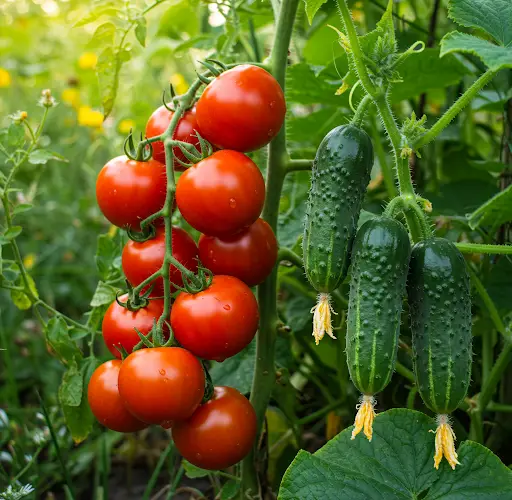Boost Plant Health with This Simple and Effective Organic Fertilizer
Nutrition is one of the most critical factors in successful gardening. Whether you’re growing vegetables like tomatoes, cucumbers, peppers, and zucchini; fruits and berries; flowering plants such as roses, hydrangeas, and begonias; or even houseplants like ferns, succulents, and ficus—proper feeding is essential for vibrant, healthy growth.
Many gardeners, even with the best intentions, often overlook how vital nutrients are to plant performance. You may have noticed your plants not growing as expected, developing yellow leaves, or producing few flowers or fruits. Often, the root cause of these issues is a lack of adequate nourishment.
Why Plant Nutrition Matters
During the growing season, especially in summer when plants are in their most active growth phase, they demand a steady supply of nutrients. Energy is directed into forming strong roots, stems, lush foliage, and developing fruit. Without proper nutrition, plants draw down available nutrients from the soil quickly, which leads to deficiencies that can manifest in various ways:
Stunted growth
Pale or yellowing leaves
Reduced flowering and fruit production
Weak resistance to pests and diseases
Feeding plants regularly not only supports growth but also fortifies them against environmental stressors such as drought, heat, and pathogens. That’s why organic feeding methods are not just beneficial—they are necessary for any thriving garden.
Understanding the Key Nutrients
Plants require a balance of macronutrients and micronutrients to grow properly.
Macronutrients:
Nitrogen (N): Supports lush, green foliage and overall vegetative growth.
Phosphorus (P): Encourages strong root development and enhances flowering.
Potassium (K): Improves fruit quality, supports immune function, and helps plants resist diseases.
Micronutrients:
Though needed in smaller amounts, micronutrients like iron, manganese, zinc, and copper play a vital role in enzymatic functions, chlorophyll production, and enhancing resistance to harsh conditions. A deficiency in even one of these can lead to visible plant health problems.
The Role of Organic Matter
In addition to minerals, organic matter is critical for healthy soil. Compost and natural plant extracts enrich the soil by:
Improving soil structure and aeration
Increasing water-holding capacity
Encouraging the growth of beneficial microorganisms
Releasing nutrients slowly over time
Healthy soil is the foundation of a successful garden. When combined with regular organic feeding, it creates the ideal conditions for vigorous plant development.
A Simple, Homemade Organic Fertilizer
Fortunately, feeding your plants doesn’t require expensive store-bought products. You can create an effective, all-natural fertilizer from ingredients you likely already have at home.
Ingredients:
1 banana peel (chopped into small pieces)
1 tablespoon of dry yeast
1 liter of warm water
Instructions:
continued on next page
ADVERTISEMENT

